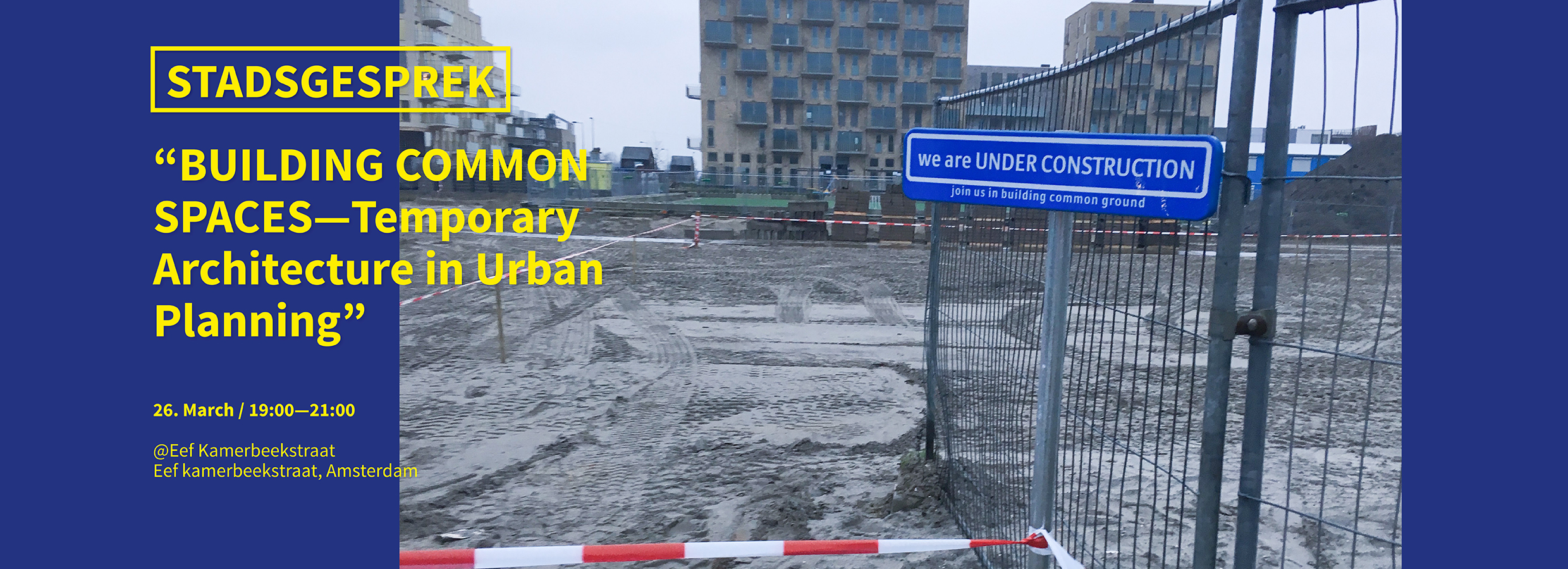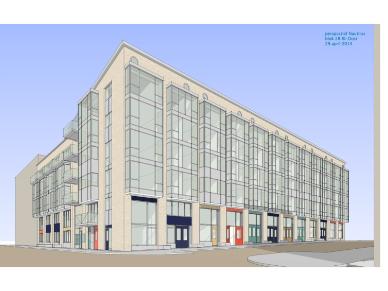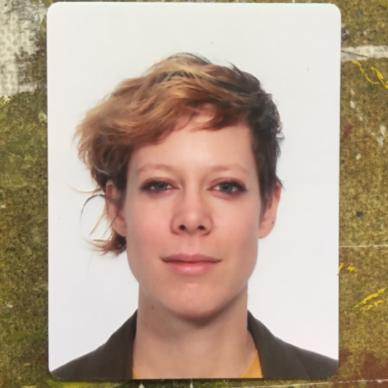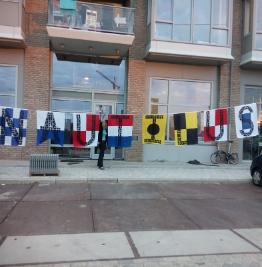Stadsgesprek: Building Common Spaces
Stadsgesprek: Building common spaces - temporary architecture in urban planning
we are UNDER CONSTRUCTION with [RE/DIS]COVER
Participants:
Host: Jeroen Boomgard (LAPS, Gerrit Rietveld Academie, Amsterdam)
Panellists: David Habets (RAAAF, Amsterdam), Kay von Keitz (plan, Stadtlabor, Köln)
Adeola Enigbokan (researcher, Amsterdam), David Cross (Sandberg Institute MA student The Commoners Society)
Date/location:
March 26th, 19.00h, Nautilus Community, Zeeburgereiland, Amsterdam
Facebook event: https://www.facebook.com/events/2036147749839502/
Abstract:
Our society and cities are subject to constant change. As citizens of an “urbanized society”1, a term coined by Henri Lefebvre already in the 1970s, the city determines our daily actions and thinking, our economy and politics.
In his essay “On the Knowledge of Cities. Urban Spaces as Laboratories for Civil Society”2, Wolfgang Kaschuba describes a “cultural change of paradigms” for urbanity that is underway in our contemporary cities. This crucial shift is marked by a breach with a Fordist conception of the city that is based on industrial production, traffic and capitalism. The “new urbanism”, by contrast, (re)discovers the city as a space for living and culture. The members of this emergent and highly self-confident urban citizenry demand greater participation in urban planning and design, more space for social life and cultural diversity in cities. In this context, the quality of public space is re-evaluated with regard to social, cultural and aesthetic criteria and a desire is felt to redesign and reuse this space as a “common space”
As part of the city talk, we would like to introduce the theoretical framework of “Urban Commons” and discuss current examples of architectonic interventions in public space. This shall serve us to take a closer look at the perspectives of use that these architectures offer for the site-specific redesign of public space and the production of intellectual and social spaces.
In doing so, we will also examine the relation of conventional urban planning and these “new producers of space”. How can cities support and help shape these developments? What structural and spatial conditions can / must urban planning policies offer in order to enable and promote temporary, participatory and need-oriented redesigns of public space, its streets, squares and parks? What options for mediation and schemes does this “new public space” need in order to prevent conflicts of interest with regard to its usage? And what actors are needed in these processes?




